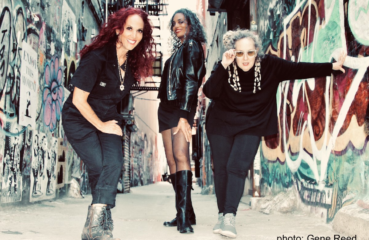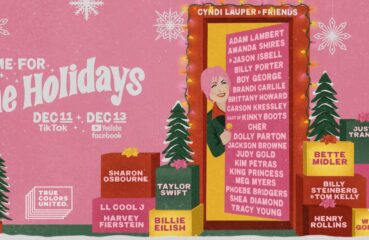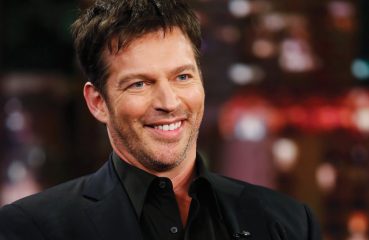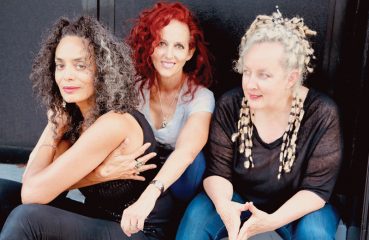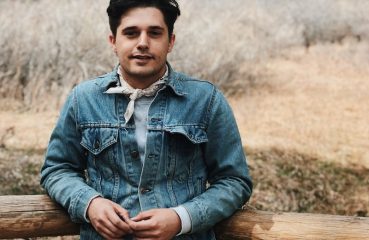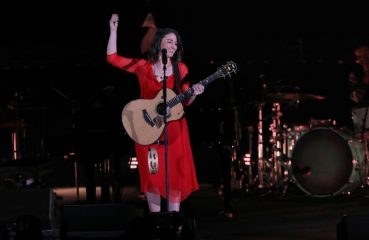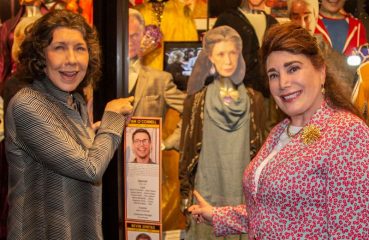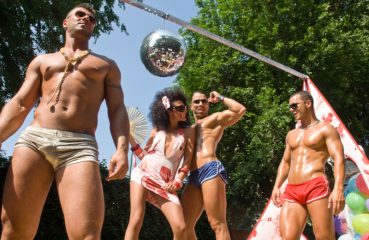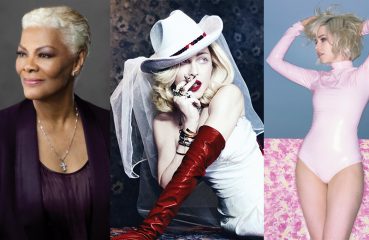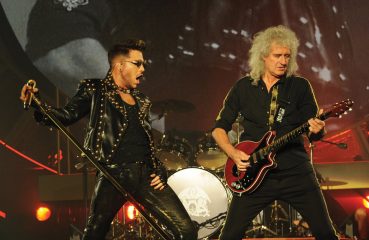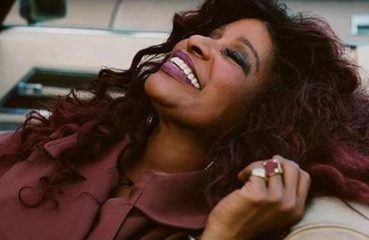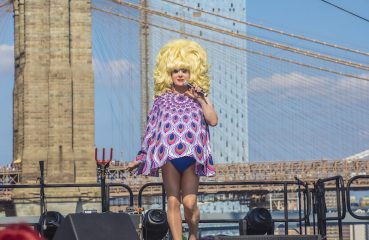CURRENT ISSUES
GAY VOICES
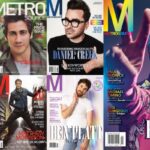
Thirty-five years. It’s a milestone that speaks volumes – of resilience, evolution, and an unwavering commitment to a community that deserves to see itself reflected with pride and panache. For Metrosource Magazine, reaching this incredible anniversary isn’t just about marking time; it’s a vibrant celebration of a journey that began in the late ‘80s, blossoming from a humble local business directory into a national beacon for the LGBTQ+ community and its allies. From its very first issue, Metrosource understood a fundamental truth: the queer experience is multifaceted, rich, and diverse. It wasn’t content to simply report on headlines; it aimed to live within the community it served, celebrating its triumphs, exploring its challenges, and championing its voices. In a media landscape that was often either silent or sensationalist about LGBTQ+ lives, Metrosource carved out a unique space, offering sophisticated, engaging, and utterly authentic content. It became a trusted friend, a stylish guide, and a powerful advocate, all rolled into one glossy package. The Early Days Imagine New York City in the late ‘80s. The LGBTQ+ community was navigating a complex era, marked by both growing visibility and the devastating impact of the AIDS epidemic. It was against this backdrop that Metrosource emerged, initially as a local publication focused on the thriving gay scene in Manhattan. Its pages were filled with listings for the hottest clubs, reviews of the latest plays, and features on local personalities making a difference. But even then, there was an underlying mission: to elevate and empower. It quickly became an essential read, a directory of queer life, and a much-needed source of connection. As the years turned, Metrosource began to expand its horizons, both geographically and editorially. It recognized that the LGBTQ+ narrative wasn’t confined to a single city, and neither should its reach be. Slowly but surely, it began to grow, adding new markets and deepening its exploration of topics ranging from politics and health to travel, home design, and entertainment. This expansion wasn’t just about increasing circulation; it was about building a broader community, connecting queer people across the nation with shared stories and experiences. A Who’s Who of Iconic Covers One of Metrosource’s most enduring legacies is its ability to attract and feature some of the biggest names in entertainment, activism, and culture. A Metrosource cover isn’t just a photograph; it’s a statement. It’s a declaration of solidarity, a moment of connection between a star and a community that often sees itself on the fringes of mainstream media. Looking back through the archives is like flipping through a yearbook of modern pop culture, infused with a distinct queer sensibility. Think about the sheer star power that has graced its covers. The legendary Liza Minnelli whose connection to the queer community runs deep, has appeared multiple times, always with her signature blend of glamour and candidness. These weren’t just promotional appearances; they were often heartfelt conversations, revealing the artists’ personal insights and their genuine support for LGBTQ+ rights. Then there’s the indomitable Cyndi Lauper, a long-time ally and fierce advocate, whose vibrant personality practically leaps off the page. Her interviews have consistently championed equality and celebrated individuality, resonating deeply with Metrosource readers. The magazine has also been a platform for actors who have played pivotal roles in bringing queer stories to life, or who themselves are out and proud. Neil Patrick Harris his charm and candor, has graced the cover, sharing insights into his life and career as an openly gay performer and family man. His presence signifies a shift towards greater visibility and acceptance within Hollywood, a narrative Metrosource has always been keen to explore. Musical icons like Adam Lambert have also found a welcoming home on Metrosource’s cover. His unapologetic artistry and journey as an openly gay rock star have provided powerful inspiration, and Metrosource has been there to capture his evolution and impact. And how can we forget the unforgettable Dolly Parton an undisputed legend and beloved ally, whose interviews always offer a dose of her signature wisdom and warmth. The pages of Metrosource have also featured trailblazers like Billy Porter, whose fierce fashion and powerful performances have redefined what it means to be a queer icon. His presence on the cover is a testament to the magazine’s commitment to showcasing groundbreaking artists who are pushing boundaries and inspiring new generations. Even pop sensations like Troye Sivan have been featured, representing the younger generation of openly queer artists who are shaping the future of music and media. The list goes on to include a pantheon of queer legends. The one and only RuPaul, who has transformed drag into a global cultural phenomenon, has been featured in Metrosource’s pages, embodying the magazine’s commitment to showcasing the power and glamour of queer artistry. His presence underscores the shift of drag from a marginalized art form to a celebrated, mainstream cultural force—a journey Metrosource has always been keen to chart. Then there’s the global superstar Ricky Martin, whose courageous public coming-out moment resonated deeply across the world. Metrosource has featured his compelling story, celebrating his journey from a closeted Latin pop sensation to an outspoken advocate for LGBTQ+ rights and a proud family man. His interviews have consistently highlighted the importance of living authentically, a core tenet of the magazine’s philosophy. And speaking of iconic personalities, Metrosource has proudly showcased the wit and wisdom of actors like Leslie Jordan. His unique charm and hilarious storytelling made him a beloved figure, and his appearances in Metrosource captured his infectious spirit and his profound connection to the queer community, which he so often celebrated with genuine affection. Similarly, the brilliant Jane Lynch, with her commanding presence and sharp comedic timing, has graced the cover, offering candid insights into her career and life as an openly lesbian actress. Her interviews have always been a masterclass in authenticity and humor, […]
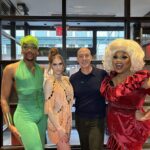
23 years ago, Metrosource published “A Gun in the Closet,” an article recounting the lives of 3 LGBTQ youth and the issues they were facing. Moved by the piece, Leo Preziosi decided to do something to continue the efforts to protect LGBTQ+ youth in response to the extremely high suicide rates. He formed Live Out Loud, a nonprofit dedicated to serving LGBTQ+ youth ages 13 to 18 by partnering with families, schools, and communities to provide resources, role models, and opportunities for our at-risk community youth. After two decades of success, the organization presented its 23rd Annual Trailblazers Gala last month, bringing together donors, corporate supporters, election officials, and youth scholarship winners to celebrate the organization’s life-affirming educational programming. At the event, 3 LGBTQ+ seniors were awarded the Live Out Loud Young Trailblazers Scholarship Award towards the college of their choice. The event also honored LGBTQ+ mentors, role models, and community builders. Truly inspiring work from just one article. We caught up with Live Out Loud Founder and Executive Director Leo Preziosi after this monumental event. You were inspired by an article in Metrosource, “Gun in the Closet,” to create the organization. What compelled you so much to get involved and start a whole non-profit? The title, “Gun in the Closet” stopped me dead in my tracks. I read those four words and knew what the article was going to be about. I couldn’t face reading it, so I placed it under my bed. Sometime later I opened it and read the article. I read about Robbie and Bill, who came from loving and supporting families who were struggling with their individual circumstances and very sadly, as we hear too often, took their own lives. What hit me the hardest was that the article spoke about the dreams and aspirations they had for their lives. I felt a sense of dread that their dreams would never be realized, dreams that could have impacted the world and changed hundreds, maybe millions of lives. Was Robbie on the path to becoming the next Neil Patrick Harris??? Was Bill on his way to becoming the next Bayard Rustin? We will never know. After reading that part, that’s when I knew had had to step forward and do something. For me it was a simple task, let’s bring the generations together so queer youth could learn from the elders of the community, elders being anyone from college and beyond. Through the years I saw just how much the elders were learning from the younger generation. Our entire community was benefiting from the programs and conversations that we were initiating. What were some of the biggest challenges in the early years in getting the word out for Live Out Loud? I never ran a nonprofit before. I studied photography and fashion design and found myself years later working in marketing and special events for a retail store named Felissimo, which was a tremendous help to me in planning fundraisers for the last 23 years. I was learning from the ground up. I had no idea how a nonprofit ran or how it was structured. It was overwhelming and complicated. It was a very scary time. I took workshops, did research, and went around meeting with the Executive Directors of HMI and GLSEN. I wasn’t planning on creating a nonprofit, it just evolved organically. How did starting this organization change your life in those early years? It was a very special time. When I shared the idea for the work I was doing with friends and colleagues, they were all very eager to step in and help. I was overwhelmed with gratitude. It also made me much more aware of the challenges that queer youth were facing in the early 2000s. When I left high school, I never looked back. I had no interest in school reunions and had no knowledge of the alarming statistics facing our students. Through research and conversations with community members serving LGBTQ+ youth, it made me much more aware. Now, 23 years later, what are the current biggest challenges? Where do I begin? We’re a small grassroots operation that operates locally for the time being, in all five boroughs of Manhattan. We’re competing with national organizations with a large development, operations, and communications staff. When corporations look to sponsor a nonprofit, they get more exposure from a national organization than from a local organization. So, they prefer to go national and not just local. I hear that a lot. What was your personal coming out story and personal experience as an LGBTQ youth? My high school years were a time filled with fear. It was a daily feeling that overcame me at the start of each day, from getting on the school bus, sitting in homeroom, walking the hallways, and taking gym or shop class. I never knew when the verbal assaults would take place. It was like dodging bullets. I was on guard all the time. It was something I lived with every day. After much therapy, I concluded that I had to start the process of coming out, especially to my parents. I remember taking a 3-day workshop titled “Coming Out” or something like that. The facilitators shared that after the 3 days, you would have the opportunity to write letters to your family and share your coming out story. I knew I would never do that, but I also knew that this workshop was the next step in me accepting that I was gay. It turned out to be an amazing 3 days, so much so that I wrote a 17-page letter to my father and a 16-page letter to my mother sharing who I was, their gay son, as well as many other things I was going through. I mailed the letters on a Monday. I was living in NYC at the time and my parents were on Long Island. I knew by Thursday that they would have received the letters. That day my phone rang, […]
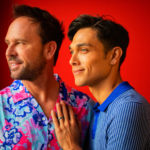
As Pride season continues with festivals, parades, and increased nightlife, there is a community within our LGBTQ+ family that continues to thrive and grow, gaining a stronger voice in the last decade – that of our sober community. Pride celebrations now include safe spaces and events that cater to those on their journey from addiction, the stigma towards our sober family and the assumption that they can’t party with us is being diminished. Yet, there is still a long way to go. Because of our battle with discrimination, isolation, gender identity, and abandonment, the LGBTQ community struggles with substance abuse at a rate of two to three times that of the general population. Alarmingly, up until now, there have been zero facilities dedicated to our particular needs. Enter Rainbow Hill, founded by Southern California-based couple Andrew Fox and Joey Bachrach. The two, inspired by their own journey in recovery, left lucrative careers in real estate to open the doors of Rainbow Hill Sober Living in 2021, and, this summer, Rainbow Hill Recovery, an intensive outpatient treatment center in the Los Angeles area. With addiction rates so high, why do they think it has taken so long to establish facilities specific to our community? Joey: From what we’ve gathered is that there’s a lot of fear with having a specific community for programming and for housing because of the clients and being afraid of not being able to fill them. Or they think about finances more than they do about the people. I can’t speak for other programs, but for us, we’re in a position where we’re able to do that and take that risk and make a difference. So that’s something that Andrew and I haven’t wavered on, which is really neat. Andrew: I got sober almost 14 years ago and I did not want to go to sober living, I wanted to be around my peers and just feel very comfortable. I did it on my own. Maybe that was the fear that got me sober. But we both wanted to design a place that we both would want to stay at. It shouldn’t be a doom and gloom – a dark gray house with closed-off curtains. We want it to be bright and happy, and a place for people to feel free to be who they are so that they can work on their sobriety. There has been a bigger presence and visibility of the sober community at our Pride celebrations. Do they think the stigma of being sober and LGBTQ is diminishing? Joey: 100 %.! There are so many cool hashtags: #soberissexy #soberAF #soberisthenewcool. It’s who we are as individuals, but it’s also a movement. It’s something that people now wear on their sleeves. I know that I’m a proud alcoholic, and I’ve been very vocal about who I am, my struggles, where I am today, and how I got to where I am today, to hopefully be a beacon of hope for people who are in our home and in our program. I love being sober and I’m an open book. Andrew: And we do like spreading that message that sobriety takes courage and it’s cool. It’s a really whole different level of self-discipline and learning about yourself as well. I do think it is a movement where people are starting to stand up and talk about it more. And then when you see a celebrity that’s sober and you had no idea, you’re like, wait a minute. What impressed me when I was out drinking and would be with a friend that didn’t have a drink at all that entire night was like, that is really cool that that person was hanging out, socializing with us, didn’t feel uncomfortable, and didn’t need to be drunk. I think it’s great that a lot of people are starting to talk about it. Joey: What’s really cool is that with a lot of LGBTQ sober celebrities, it shows that addiction affects everybody, all walks of life. It doesn’t matter whether or not you’re homeless or if you’re a celebrity that everybody recognizes from the street, the beautiful thing is that it doesn’t discriminate, and it’s something that people can relate to one another. I find that rather beautiful. The couple would meet when they paired up for a real estate agent’s broker preview. Soon after they would start to hang out and discover their shared interest and their shared recovery path. Andrew was newly sober, with just a few months in, and Joey with more than a decade in recovery. After Andrew played hard to get for a bit, they eventually went from best friends to dating to getting married. And though they are currently on the same recovery journey, their fall to addiction was very different. Joey: I would put myself in very questionable situations where I have been sexually harassed and assaulted. And it’s something that has taken a lot of time and a lot of therapy to speak openly about. I did not like who I was, and I had three different versions of myself. I had Hoe-y who was a whore. I had Jose who was a completely despicable human being. And then Joey, who you’re interviewing today. But knowing that those versions of myself are dormant and not dead has been something that keeps me in check day in and day out, which is kind of neat. It was going to be my downfall and I probably would’ve died, to be completely transparent with you. Andrew: I was a functioning alcoholic for many years and it wasn’t until a series of events in my life that weren’t going my way. I had first-time deaths in my family that I had never dealt with before. Just some really hard times, all bundled together to where I tipped over and just could not stop drinking. And it was a depression along with that. I was literally at the bottom of a pit not knowing […]
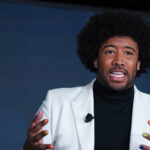
With his retro ‘fro, signature turtlenecks and painted nails, Eugene Daniels has been bringing Mod Squad swagger to Morning Joe and Meet the Press, more than holding his own alongside seasoned political analysts. Described as a “rising star” Politico reporter by Vanity Fair upon his inclusion in Playbook, Daniels is part of an elite squad of reporters tasked with having their fingers on the pulse of the power players in Washington D.C. As an openly gay African American White House Correspondent, Daniels is broadening the lens of what it means to be a journalist in 2023. I sat down for a one-on-one Zoom session with Mr. Daniels to get a glimpse behind the man and his mystique. If intersectionality is the current buzz word du jour, Daniels is an apt representative, keenly aware that the very things that once were the source of trauma growing up are now valued traits which give him a unique insight into American politics. Combined with his calm demeanor and nuanced commentary, Daniels has become a mainstay on MSNBC and is representing in the best possible way as an openly gay, proud Black man. What’s more, Daniels is keenly aware of the responsibility that comes with this position. It is what drives him and informs his coverage. Little did he know as a Black gay child growing up in a smattering of Southern states from Arizona to Florida that he would one day not only be part of the White House press corps, but that he would be living out his ancestors’ wildest dreams, flying on Air Force One, chatting with the Bidens alongside his husband Nate Stephens at the White House Christmas party or posing questions for a one-on-one sit down with Madam Vice President Kamala Harris. But all that is a day in the very hectic life of Eugene Daniels who was once told by a former boss that he’d never make it in broadcasting because his voice was “too Black.” Fortunately, that very wrong and very bad advice did not deter him. To the contrary, it likely spurred him to greater heights because he realized if he wanted to spread his wings, he would need to leave behind the comfort of local news in Colorado and head to Washington D.C. Daniels posted a photo of himself as a child to his Instagram account on National Coming Out Day. It’s a sweet photo capturing the innocence of childhood but there’s a sadness that comes through his eyes. Whether the sadness had anything to do with his sense of being different or whether it was something entirely mundane, we’ll never know. Swipe right and we see the adult, fully realized out and proud man he would become. Beside the childhood photo, Daniels writes: “To the kid in the first picture: It’s going to take you decades (almost 3) to finally love yourself and accept what you already know to be true. It’ll take you longer to celebrate it.” Talk to me about what your childhood was like and the perspective that you now have looking back. I look back at my childhood and I feel very fortunate, despite the fact that I got bullied as a kid for being gay. I didn’t come out till I was 27, but I felt really lucky to have parents and siblings who were very loving. And so, while school really sucked, I would get to come home and my mom and I would talk almost every day. My dad was in the army, so he was deployed a lot, but also very there and fabulous. So, my home life was great. I think a lot of queer people look back and feel very sad for the kid that we were. There is a kind of hopelessness when you’re a kid and you know something’s different before you have the words to know what it is. I was one of those kids who always knew I was different and more fabulous and gay. Daniels describes the Pulse Nightclub shooting in 2016 as a catalyst for his own coming out. Though he was living in Colorado at the time, a safe distance from the massacre, Daniels recalls how the horrific event had a profound impact on him. I remember thinking seriously, for the very first time that I could die and no one would know who I actually am. That kind of shook me to come out of the closet. This terrible thing happened to all these people who were just being themselves and here I was in the closet. I started to envision what my life might look like if I started to live my truth, if I started to actually be myself and be with men. Up until that point, I dated women exclusively. I just could not leave this earth without my family knowing fully who I am. And it changed everything about my life. If Pulse provided the impetus to come out, it was his move to Washington D.C. which served as his springboard into embracing his truth as a gay man. He recalls reading a New York Times article by Jeremy Peters proclaiming Washington D.C. as “The Gayest City in America.” Though to be clear, there was a question mark in the title which gave the author a little wiggle room since the claim was based on surveys by Gallup and the Census Bureau. When I came out of the closet, I was very intentional about repeating the mantra “we’re never doing that shit again.” We’re never going to hide who we are. I’m going to feel comfortable in my skin. I’m going to always feel like I belong somewhere. My mom gave me this advice when I was younger which was “you belong in whatever room you find yourself.” Daniels applies this mantra to his professional life as he finds himself in spaces typically reserved for straight, white counterparts. A self-proclaimed Beyoncé super-fan, Daniels draws strength from the song “Cozy” from […]
THINGS TO DO
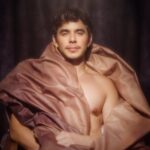
Sexuality flows like a river. It’s powerful, it’s undeniable, and it lifts us up and carries us where we need to go. When we fight against the all-consuming current of our natural desire, it wears us down and drowns our soul. But when we conquer the rapids and come out the other side, the rush is transcendent. Let’s dive deeper with David Archuleta. He maneuvers the turbulent waters of fame, religion, and sensuality so spectacularly swimmingly. After establishing himself as the boy-next-door on American Idol, Archuleta publicly identified as queer and watched his church support float away. But his resilience is robust, his talent is as mighty as the Mississippi, and his voice surges with sensuality. “It’s not like a full on sex EP,” Archuleta coos humbly. “but I feel like I was just being present in my body.” Indeed, his sinewy frame hypnotizes viewers in various videos from the deluxe edition of Earthly Delights. Archuleta soars like an angel, grooves like a god, and seduces the audience every time he gazes into the lens. “I made room for myself to grow with this EP and allowed myself to navigate the flirty nature of just living. Living life and feeling confident.” Downshifting into aw-shucks mode, Archuleta admits, “I’m not gonna lie, I didn’t know I was capable of these emotions. I didn’t know it was in me, so I was proud to discover it and play in that place with Earthly Delights.” Authenticity is the ultimate aphrodisiac, and Archuleta flexes his truth like a peacock broadcasting its brilliance. By raising his voice, he silences the villains… but finding that voice was no simple task. “I have always wanted to sing in Spanish, from the very first album I released when I was 17. I recorded my song Crush in Spanish and I was like I would love to release this, but for whatever reason my record label didn’t want to and they shelved it.” Putting a personal punctuation to his point, Archuleta continues, “They didn’t wanna spend their time or money investing in my Latin side.” Fast forward to the queer-and-now. “I’m just in a place where, you know what? Why not do it? Let’s explore a little bit. I’m Hispanic. Half of my day, I’m around Hispanic people, so it’s a part of me. I’m like, let’s do Spanglish. That’s how I live my life anyways; I live a very Spanglish life day to day. It’s about being yourself. That needs to come out.” So Archuleta teamed up with Colombian sensation Esteman to create a bilingual version of his barnburner Crème Brûlée. The lyrics swirl effortlessly between languages, orientations, and delectable metaphors, equating the titular dessert with a heaping helping of eroticism. Oh no, there goes all of your clothes. Oh yes, you will go loco for Crème Brûlée. Gyrating on down the playlist, we discuss another pop confection from the EP: Dulce Amor. Part love ballad, part overwhelming obsession, and all Archuleta, this velvety concoction massages your eardrums before working its way into your brain, heart, and beyond. Archuleta gushes about his inspiration for the swooning single. “Blue is, I feel, one of the greatest albums ever made. It’s so expressive, it’s just so well done and, funnily enough, in the studio, there was a painting of Joni Mitchell. I was like, ‘That Blue album was life-changing’ and I was like, ‘Can we just say that? Can we just mention her?’ I feel like she’s worth mentioning.” So, Archuleta worked with his creative team to rework the lyrics accordingly. “We reference some of her most iconic songs ever from that album. They talk about yearning and longing for something, cause it’s like ‘I could drink a case of you’ or like ‘I wish I had a river I could skate away on.’ It was just longing. That was symbolism with that line choice, just to say you want this person, you’re craving them, they’re so sweet. They’re Dulce Amor, it’s a sweet love that you’re craving and you want more of.” And then something magical happens: David Archuleta breaks into song and bursts our interviewer into joy. “You’re my favorite place, El Pescador. End of day, been two weeks, and nothing tastes the same. You’re my favorite record, Joni Mitchell Blue. Wish I had a river, had a case of you.” When I gay-gasp at the fact that a gold record selling, umpteen award-winning artist just crooned spontaneously, Archuleta responds in kind. “I didn’t even realize I sang. Did I sing?” Um, heck yeah you sang. “Oh my gosh!” exclaims Archuleta. “My friends always tell me that. They’re like, ‘oh I love it when he just randomly started singing.’ I’m like I don’t even realize I’m doing it. Holy cow.” Bucket list item: accomplished. And he’s gonna sing to you too – LGBT+ Days are coming to Cathedral City, California from March 6th to March 8th and Archuleta is the capital-P Proud headliner. “I look at Pride as celebratory, so for me it’s really fun to have a celebratory take on a show, ‘cause I’m known for singing a lot of ballads and being a vocalist, which is what I do, but it’s also fun to just have dancing. I love to dance, I love to go out, I’m Hispanic so it just feels so good and therapeutic to be somewhere where you can just let your hair down and just let loose and not worry about what other people think and just dance.” For fans who yearn to hear the chart-toppers that made David Archuleta famous, you’re in luck. He’s not dancing away from his roots but rather cultivating them into a groovy garden that flourishes into a towering queer monument to his range. “I just hope people come ready to have a good time and celebrate and party and I might throw a more emotional song in there, so they’ll have that too, along with the fun stuff. Some dancing. Some choreography.” Variety and inclusiveness […]

Fire Island is considered a safe haven for queer and marginalized communities, but its hidden and often complicated history deserves acknowledgement, too. Pamela Sneed and Carlos Martiel seek to tell the little-known stories of black resistance and resilience on the Island through Sacred and Profane, an expansive and informative exhibition featuring new works including poetry and mixed-media collages that uncover haunting and historical narratives that have remained mostly untold until now. Sneed’s research and pieces appear in tandem with Martiel’s Cuerpo (2022), Custody (2025), Gran Poder (2023), as well as a fresh performance co-created alongside his mother titled No Resurrection, which documents the widespread grief and shock experienced by African American parents and their children who’ve been victimized by police violence. Learn the whole story at leslielohman.org. Opens February 20, 2026 Leslie-Lohman Museum of Art (26 Wooster St., New York, NY 10013)
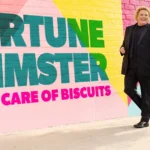
There’s more to love this Valentine’s Day when actor and queer comedian Fortune Feimster (The Mindy Project, Velma, The L Word-Generation Q) brings her brand of hilarious southern humor and hospitality to the Upper West Side’s iconic Beacon Theatre. Just one stop on the 2025 ‘Take Care of Biscuits Comedy Tour’ this one-night only engagement will shine a spotlight on Feimster’s exceptional storytelling talents and full-hearted laughs which have been featured on Netflix, Comedy Central and more. Get another hit of good Fortune at beacontheatre.com. February 14, 2026 The Beacon Theatre (2124 Broadway, New York, NY 10023)
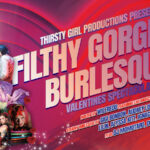
Strip off the stress and add some heat to this year’s V-Day festivities with a visit to Le Poisson Rouge. Within the venue’s intimate basement walls, you’ll find a night soundtracked by Broadway Brassy & The Brass Knuckles, plus scantily-class performances from burlesque icons including Samson Night, Margo Mayhem, Gigi Holiday, Puss N Boots, Frankie Eleanor, Agent Wednesday, Jack Barrow and Pinkie Special! Feeling feisty? You’ll have a chance to do some routines too when scene all-stars the likes of DJ Momotaro, Rosie Tulips and Lily Lavalocks take the decks with eclectic dance floor-driven sets. Get filthy at lpr.com. February 14, 2026 Le Poisson Rouge (158 Bleecker St., New York, NY 10012)
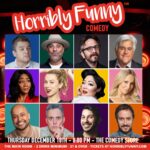
Does the “most wonderful time of year” have you feeling frazzled, frenzied and, okay we’ll say it, f*ed up? Well, you’re in good company. Come commiserate with a room full of people who are just as horrible as you. In this edition of Horribly Funny at the The Comedy Store catch some of the world’s most renowned comics — names like Margaret Cho, Patton Oswalt, Iliza Schleschinger, Marc Maron and Nicole Tran — amped up and ready to bring their worst selves to one of the west coast’s most hallowed stand-up stages. Be a bad person at thecomedystore.com. December 18, 2025 The Comedy Store (8433 Sunset Blvd., Los Angeles, CA 90069)

The Gay Men’s Chorus of Los Angeles (GMCLA) always packs in the hits, and their two-night Holiday Legends engagement promises to be among their greatest gifts yet. With 200 voices strong, the beloved collective will unleash renditions of classics by titans like Irving Berlin, Johnny Mathis, and of course, the Christmas Queen, Mariah Carey in a stunning choral presentation that covers a wide range of eras, melodics and sounds. Drawing from holiday traditions to corners of the mythical realm, they’ll charm and enchant you with showstopping numbers that touch on other folklore faves — friends like Santa, Rudolf, the Grinch and more. Their powerful timbres are sure to infuse magic into your schedule so save some room and prepare to sing-along. There’s magic in the music at gmcla.org. December 13-14, 2025 Saban Theatre (8440 Wilshire Blvd., Beverly Hills, CA 90211)
PODCAST: METRO MINIS

Metrosource Minis is the official podcast companion to the national LGBTQ print and online magazine featuring short form interviews with our featured celebrities from the LGBTQ world and beyond…with your host, Alexander Rodriguez. Quick, fun, and informative…Metrosource on the go. [podcastplayer feed_url ='https://feeds.sounder.fm/3885/rss.xml']
Murray Hill is larger than life. He’s got a big personality, a positive outlook, an infectious style of banter, and an endearing demeanor. It is all presented in a colorful package, suit and all. But it is not just a persona. After chatting with him for just a few minutes, it is clear that he is the real deal. Talking to him is like talking to everyone’s favorite guy at the bar. He’s got stories, jokes, and opinions on life. He’s also got a lot of talent that has taken him from the New York club scene to the stage and screen. You never know where he is going to pop up, from cameos in films to burlesque, from opening for rock bands to performing at parties for Liza, from performing in his one-man show Murry Hill As Himself to co-starring in the hit HBO show Somebody Somewhere. He’s a throwback to classic Hollywood in the style of Benny Hill and Sammy Davis Jr. but with modern flair. He’s unapologetically queer and has moved our community forward in media representation, but without pomp and circumstance, just a lot of heart.
In this episode, we talk about the challenges Murray overcame in his youth, the importance of the New York City scene in the 90s, being true to yourself, the power of persistence, Murry’s touring one-man show, the power of his HBO show Somebody Somewhere, having a little grace with Arnold Schwarzenegger, the power of comedy, and even a little Liza.
Hosted by Alexander Rodriguez. @alexanderisonair
Check out our in-depth chat with him in the current issue of Metrosource or at Metrosource.com
For info on Murray’s tour head to Mistershowbiz.com

©2026 Bent Share Entertainment, LLC – All Rights Reserved. If you are using a screen reader and are having problems using this website, please call 800-818-0480 or email info@metrosource.com for assistance. We will be happy to help.

